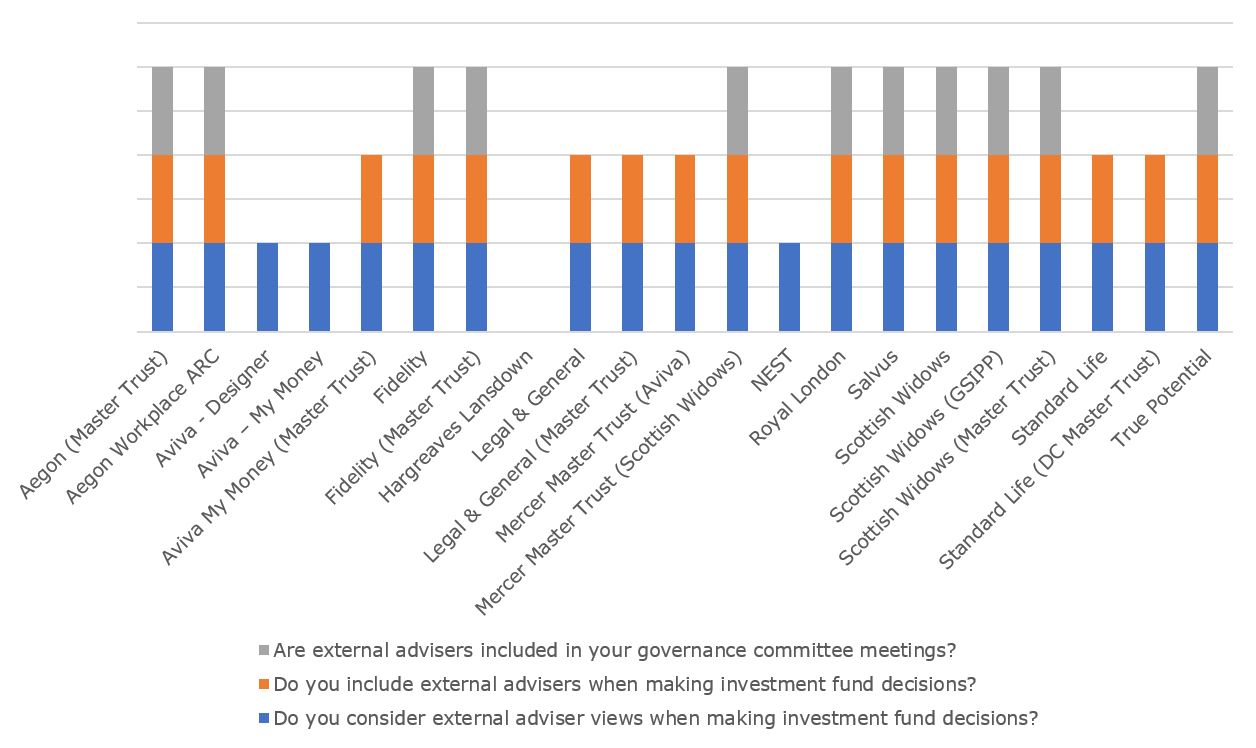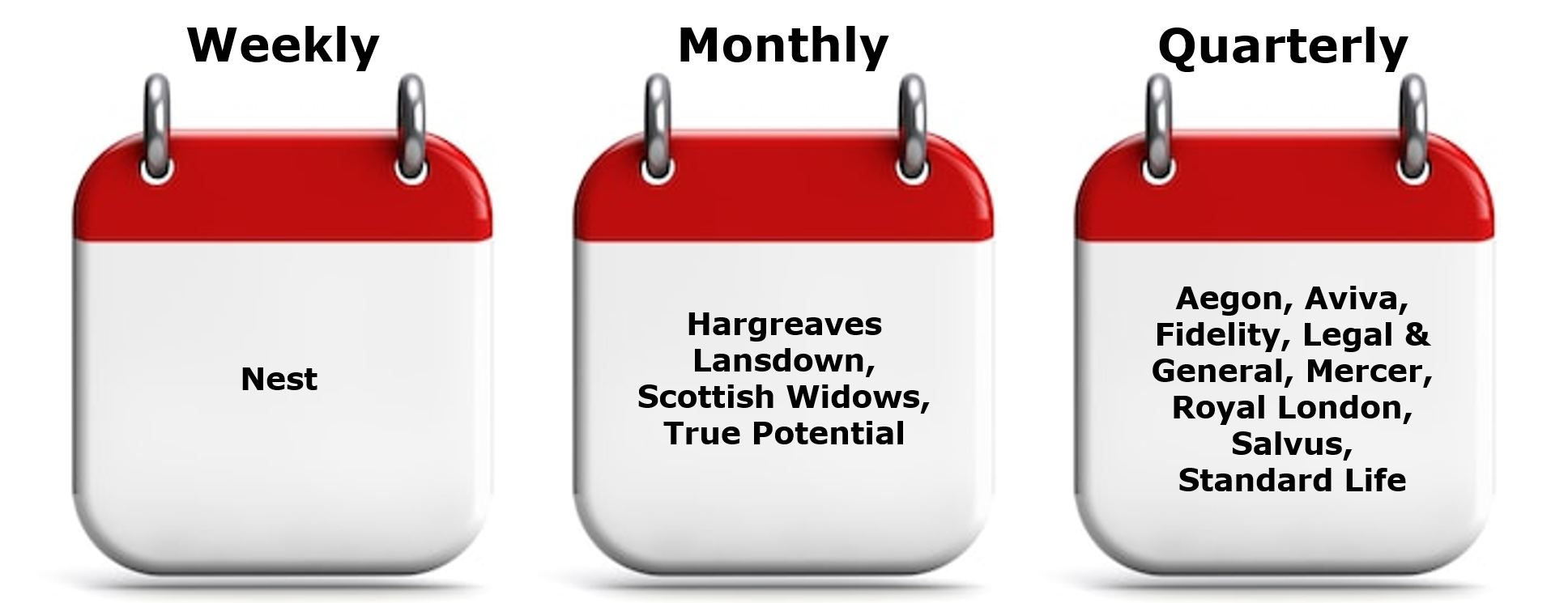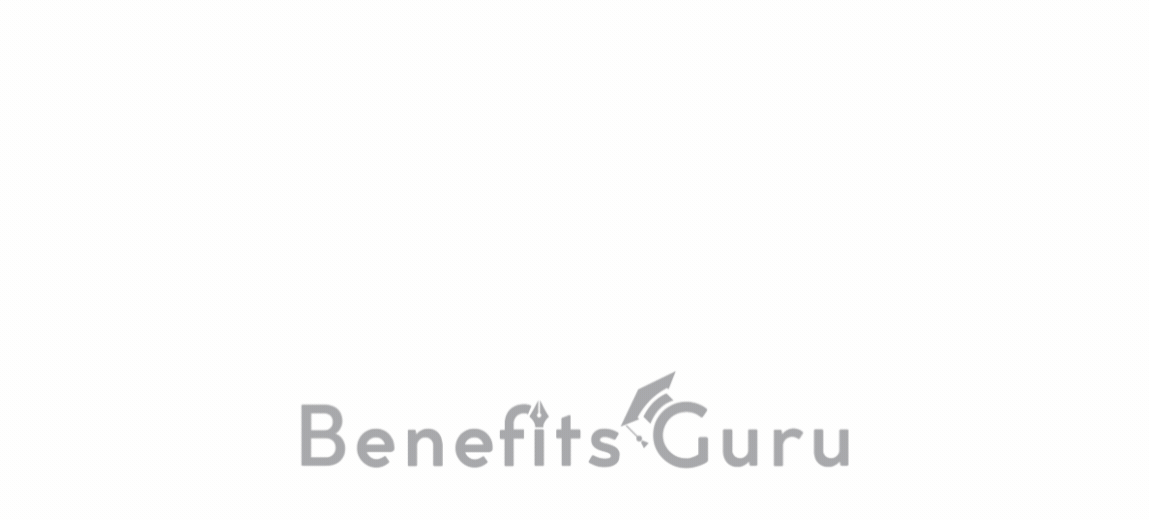When choosing a suitable pension scheme for corporate clients, one factor that advisers will want to look at is the overall governance of the propositions they are considering.
Governance involves keeping an eye on pension schemes to ensure they are run properly and are acting in the best interests of their members. This will involve everything from making investment decisions and keeping investment costs at a reasonable level, to making sure the scheme always has enough money to pay members their pensions at retirement.
The Pensions Regulator and the Financial Conduct Authority, which regulate workplace pensions, both recognise that good governance is key to getting a good outcome for pension scheme members. This is why there are rules around providers of workplace personal pension schemes having to set up Independent Governance Committees (IGCs) or employ another company to take care of their governance for them under a Governance Advisory Arrangement. Similarly, trustees of occupational defined contribution schemes must explain in their annual statements how they have met governance requirements.
These rules explain why all 21 propositions in our analysis have established an administrative committee to oversee governance. Workplace personal pension schemes need to have a committee and trustees of occupational DC schemes may find a committee makes it easier to meet and document their governance requirements.
However, it not enough to have a team looking at governance issues – independence is also a big factor. The FCA recognises this and requires that most members of an IGC and its chairman are independent of the provider. All the commercial pension providers (excluding Nest) in our findings have independent chairs to avoid potential conflicts of interest.
Within any type of committee there is a need for diversity among members. A range of different voices and opinions is most likely to give you a fuller picture, with healthy checks and balances. This goes some way in explaining why the vast majority of propositions consider external advisers’ views when making decisions about investment funds.
The only proposition which does not take on board external advisers’ views is Hargreaves Lansdown. However, this is in line with its business model of using the specialist investment expertise and resources it has in-house.
The majority of propositions go one step further in including external advisers in investment decisions. However, the fact that four propositions do not shows that it is possible to take on board what external commentators are saying about funds, asset classes and so on, but they don’t need to be involved in the decision making process.
Fewer providers invite external advisers to their governance committee meetings. As our graph shows, there is a fairly even split between those who do and those who do not – 11 and 10 propositions respectively.
One interesting observation is that although some providers consider external advisers’ views and involve them in making investment decisions, this does not necessarily mean the external advisers will attend governance meetings. Legal & General, Standard Life, Aviva My Money (Master Trust) and the Mercer Master Trust administered by Aviva do not include external advisers in governance meetings, but do consider their views and include them in investment decisions.
Monitoring the performance of funds in line with their objectives is something that all the governance committees do, but how often this happens varies between providers. For most propositions it is quarterly, but Hargreaves Lansdown and the three Scottish Widows propositions do it more often, on a monthly basis.
NEST however monitors the performance of funds against their objectives most frequently, on a weekly basis.
Most providers in our table monitor the underlying assets within their investments in line with their investment objectives, with Legal & General the only exception.
Similarly, the vast majority of providers regularly monitor changes such as mergers & acquisitions and analyse the effect these have on fund managers. It is probably worth noting that Salvus, the only exception, is an occupational DC scheme which has employed an investment adviser to advise its trustees, so its set-up will be different to many of the other offerings listed in the table
All 21 propositions also monitor volatility, tracking errors against the agreed benchmark, fund liquidity and charges. These are all things that feed into the process of acting the members’ interests and ensuring they get value for money.
Hargreaves Lansdown is the only provider not to monitor external research but as mentioned earlier, its business model is to keep all things investment related in-house and make use of its own resources in this area.









